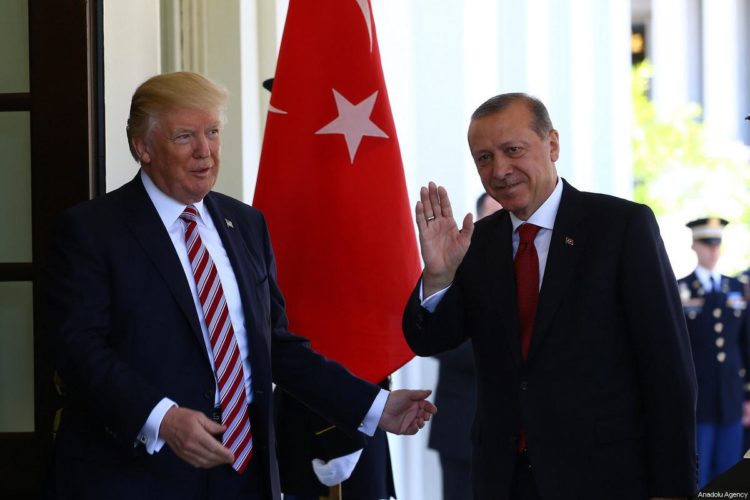Several members of the United States Congress, on both sides of the aisle, have been quietly blocking U.S. arms sales to Turkey for the past two years.
This bipartisan move has been in response to Turkey’s decision to buy Russian made S-400 antiaircraft missiles and to Turkey’s increasingly close relationship to Russia and President Vladimir Putin. The story was first broken by Defense News and has since been confirmed by other news sources.
Turkey is a longtime member of NATO and has been a close ally of the U.S. for decades. However, its relationship with the U.S. has become increasingly strained. Erdogan has been turning Turkey into a less secular state. He has converted the Hagia Sophia into a mosque and openly called for Turkey to become a new caliphate. Turkey also invaded Syria and attacked Kurdish-held areas, something which angered Congress. This latest revelation won’t help ease matters between the two countries.
The purchase of the Russian S-400 system, caused Turkey to be ousted from the F-35 joint strike fighter program. Additionally, there are at least two significant arms deals which are on hold for the foreseeable future: The two countries have a follow-on contract for F-16 structural upgrades as well as export licenses for U.S.-made engines for attack helicopters that the Turks are selling for $1.5 billion to Pakistan.
There are six Congress members holding up these arms deals, according to Defense News. Senate Foreign Relations Committee Chairman Jim Risch (R-ID), and House Foreign Affairs ranking member Rep. Mike McCaul (R-TX), have both confirmed that they are part of the arms deals freeze. Others including House Foreign Affairs Committee Chairman Eliot Engel (D-NY) and Senate Foreign Relations Committee ranking member Sen. Bob Menendez (D-NJ).
“Turkey’s purchase of the Russian S-400 is unacceptable and undermines NATO’s mission to deter Russian aggression. The Administration must impose the sanctions required by law in response to this purchase. Turkey must reverse course on this destabilizing action to renew the United States’ confidence in our defense relationship,” McCaul said in a statement to CNN.
“There is serious concern over [Turkey’s purchase of the S-400] in both parties and in both chambers on the Hill, and until the issues surrounding this purchase are resolved I cannot and will not support weapon sales to Turkey,” Risch emailed to Defense News.
“Turkey is a longtime strategic ally of the United States. That relationship has deteriorated dramatically in recent years and is quickly deteriorating further,” Risch added. “President Erdogan’s purchase of the Russian S-400 significantly changed the nature of our relationship. This purchase benefits our adversary Putin and threatens the integrity of the NATO Alliance.”
In November, Turkey openly thumbed its nose at Washington. A day after Erdogan visited the White House, Turkey publicly targeted scrambled Turkish F-16s and F-4s with the S-400, in an exercise that many in the U.S. interpreted as an unspoken threat. Obviously, the tests were of great benefit to Russia which no doubt wanted to see how well its S-400 performed against American aircraft.
Turkey had originally planned to buy 100 or more F-35s, which would have made it one of the biggest purchasers of the stealth fighter. However, the Turkish government’s decision to buy the Russian S-400 air defense system set off alarms within the Pentagon. Defense Department officials last year said that the Turks having the S-400 was “incompatible” with also owning the F-35 Lightning II.
Russian technicians who were sent to Turkey to help in operating the S-400 would be in far too close proximity to the F-35 and would be able to understand the intricacies of the aircraft. This, in effect, would hand to the Russians the secrets of what makes the aircraft unique, especially the stealth aspect of the fighter, and how the Russian systems perform against it.
Already have an account? Sign In
Two ways to continue to read this article.
Subscribe
$1.99
every 4 weeks
- Unlimited access to all articles
- Support independent journalism
- Ad-free reading experience
Subscribe Now
Recurring Monthly. Cancel Anytime.
Congressional aides said the effort to block arms sales is intended to ensure that the administration imposes the sanctions required by law under Countering America’s Adversaries Through Sanctions Act (CAATSA), in response to Erdogan’s buying of the S-400.
Under the act, the administration is bound to level sanctions against any nation that purchases a major defense article from Russia. Yet, the administration has yet to impose any of such sanctions, which has many Congress members irked.
“Our end objective isn’t to punish, it’s to ensure that our NATO partner acts in a way that’s consistent with American national security and the security of our NATO partners as well,” Secretary of State Mike Pompeo said.
The Turkish Embassy in Washington released a statement saying, “There are a number of arms procurement cases for Turkey, pending approval in Congress. As a staunch member of NATO and an ally of the U.S., we are confident that the approval of these requests without further delay will be a natural outcome of our strategic cooperation.”
“The U.S. is our number one trade partner in the defense industry and we believe that it is in the strategic interest of both Turkey and the U.S. to further increase our bilateral cooperation in this field,” the Turkish statement continued.










COMMENTS